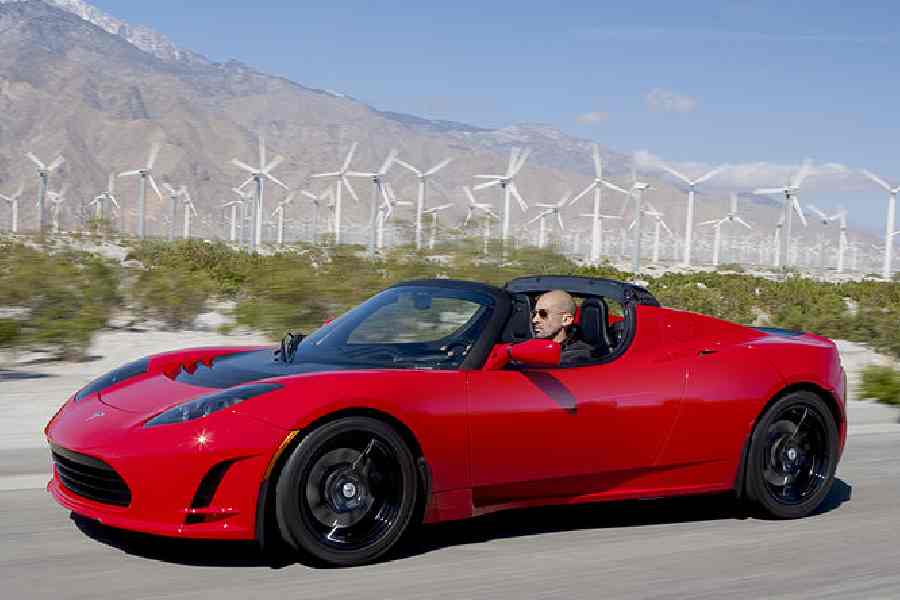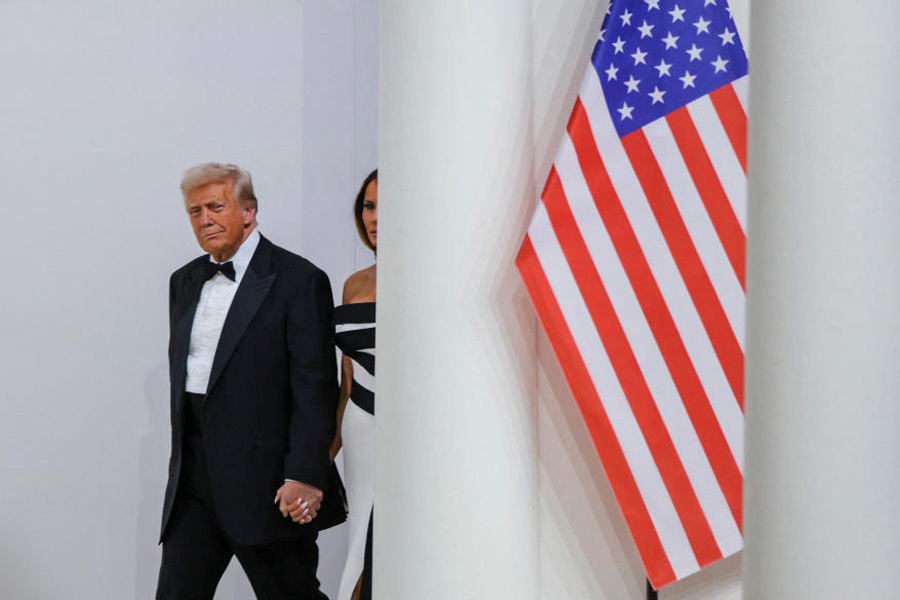Automakers Tesla and Geely-owned Volvo Car said they were suspending some production in Europe because of a shortage of components, the first clear sign that attacks on shipping in the Red Sea are hitting manufacturers in the region.
The US and Britain launched a series of strikes on Yemen on Thursday aimed at the Iran-backed Houthi militia whose attacks on international shipping have disrupted one of the world’s most important shipping routes.
Container shipping rates jumped further this week as concerns grew that vessels carrying everything from clothes, phones and car batteries will have to avoid the Suez Canal, the fastest route between Asia and Europe, for longer than expected.
The biggest supply chain upheaval since the Covid-19 pandemic risks derailing the global economic recovery, while higher freight and oil prices could reignite inflation. The canal accounts for about 12 per cent of global container traffic.
Late on Thursday, Tesla told Reuters it will suspend most car production at its factory near Berlin from January 29 to February 11, citing a lack of components after many ships were re-routed around the southern tip of Africa.
“The armed conflicts in the Red Sea and the associated shifts in transport routes between Europe and Asia via the Cape of Good Hope are having an impact on production in Gruenheide,” a Tesla statement said.
“The considerably longer transportation times are creating a gap in supply chains.”
It did not say what components were delayed arriving at the factory where it assembles electric vehicles for sale in Europe.
Volvo Car, which is majority-owned by China’s Geely, said it will pause output at its plant in Gent, Belgium, for three days next week because of a delayed delivery of gearboxes.
Some tanker operators have ceased traversing the Red Sea following the US and British air strikes on Yemen’s Houthis, as regional conflict stemming from Israel’s war in Gaza widens. Adding to the logistical headaches hampering trade, low water levels because of drought have reduced crossings of the Panama Canal.
Shipping giants such as Maersk and Hapag-Lloyd have been sending their vessels on the longer, more expensive journeys around Africa. Last Friday, Maersk said it expects the re-routing, which adds about 10 days and around $1 million in extra fuel to a journey from Asia to Northern Europe, to least for the foreseeable future.











